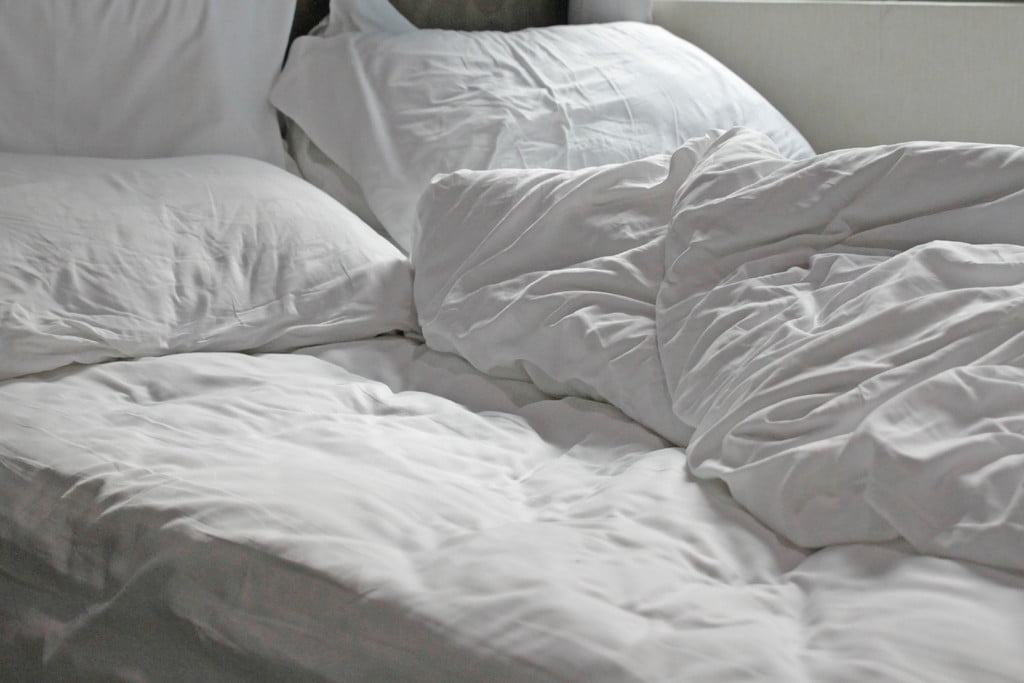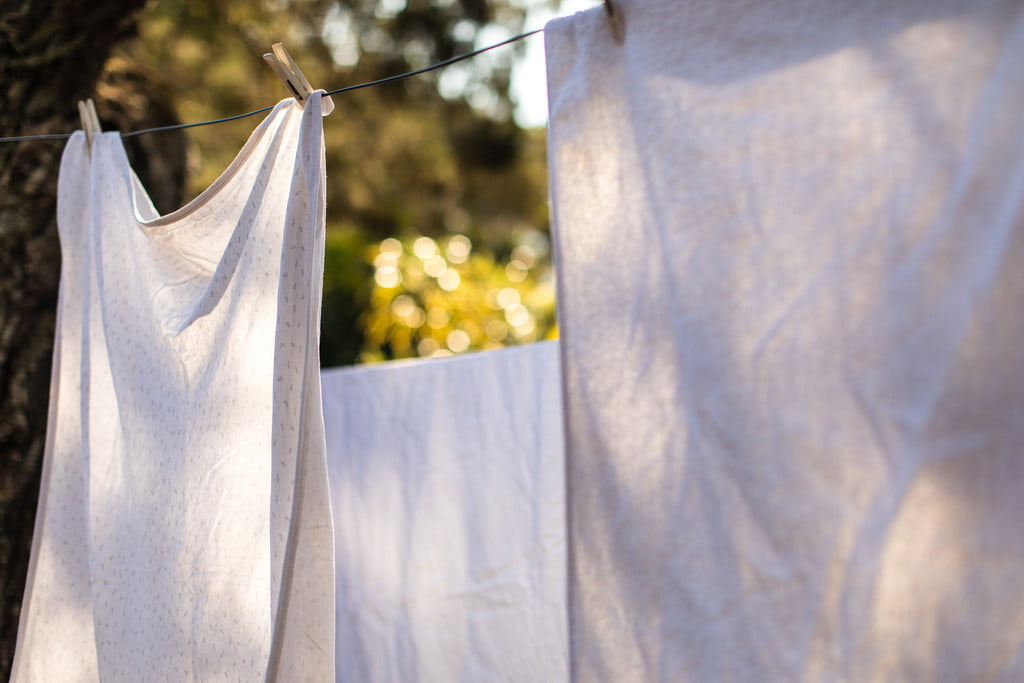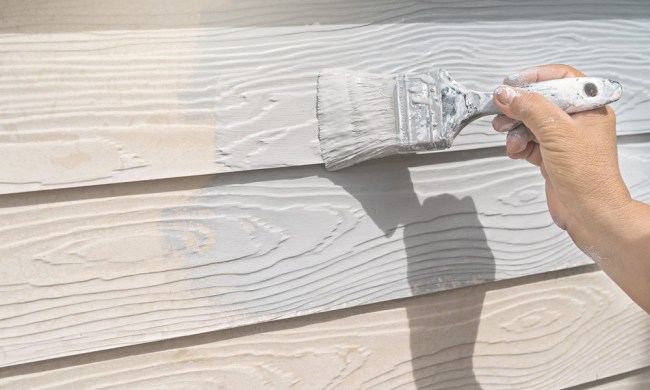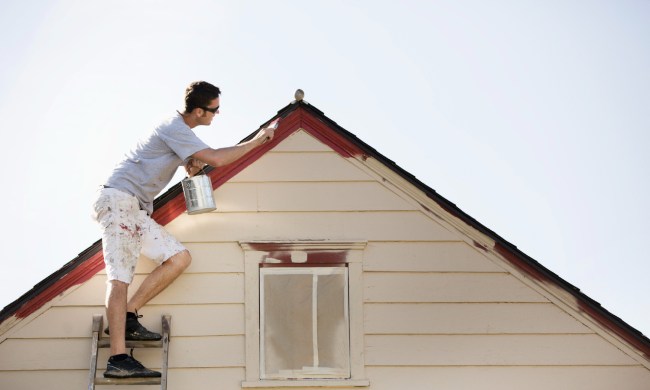Everyone knows that you should wash your sheets often, but do you really know why? Obviously, sheet washing is a matter of good hygiene, but there are also several health benefits to washing sheets regularly.
With all of the time that we spend in our beds, it’s no wonder that sweat, dirt, and oils from skin end up on bedding. So how important is regular cleaning of your sheets? In short, immensely — dirty sheets can contribute to allergies, asthma, breakouts, and more. Curious about how clean, washable sheets benefit your health and sleep quality? We were too, and we did the research so you don’t have to.

How often you should wash your sheets
As a general rule, most people should wash their sheets once a week. If you don’t sleep on your mattress every night, you could probably get away with washing your sheets once every two weeks.
Several factors contribute to how often you should wash your sheets. If you have pets – especially if you let them sleep in your bed – you should wash your sheets once every three to four days. If you have allergies or asthma, you may need to wash your sheets once every two days to see symptoms improve.
If you are a hot sleeper, you may want to wash your sheets more often, since you probably sweat more than the average person. If your room gets hot in the summer months or if you have seasonal allergies, this may be true also.

Why it’s important for your health
Washing your sheets once a week or more may seem like overkill, but it is a worthwhile chore. After just a few days, your sheets can pile up with large amounts of dirt, body oils, dead skin cells, sweat, and dust mites. That’s right, dust mites — and their fecal matter and carcasses. Gross. While sleeping in your own dirt and dead skin may not creep you out, sleeping in dead bugs and their excrement should.
Dust mites are teeny-tiny creatures that are very common in most households. Part of the reason dust mites thrive is that they are microscopic — we can’t see them with the naked eye. Though dust mites don’t bite, they can lead to skin rashes and irritation and worsen allergy symptoms. The little bugs reproduce at an incredibly fast rate and can live their entire lives eating only dead skin cells. So, at any given time, there could be thousands of dust mites living in your mattress and bedding. Regularly washing your sheets can help keep them at bay.
Why do freshly washed sheets feel good?
Hopping into your bed with freshly cleaned sheets feels immaculate for simple reasons. Their smooth, crisp fabric and soothing scent create a wonderful way of increasing your comfort and helping you fall asleep. In fact, a study conducted by the U.S. National Sleep Foundation in 2012 found out that 73% of us enjoy better sleep on fresh sheets. The laundry detergents used also play a role in this. Not only do they provide effective cleaning, but there are others that also promote a night of restful sleep and offer calming scents for relaxation.
Should you wash new sheets?
Identifying whether or not you should wash new sheets is a matter of choice between saving yourself from the hassle of an extra load of laundry or making sure they are sanitized before you put them on your mattress. Sleeping on sheets right out of the package isn’t harmful, but it’s always a good idea to get them cleaned before using them.
Although they look clean and ready to be slept on, the fact remains that they were produced in a factory. There have been reported incidents of itchy and irritating sensations when sleeping on new, unwashed sheets, which is mostly caused by a starch called “sizing” that’s responsible for keeping them crisp and smooth in the packaging. That’s why it’s recommended that you give them a quick wash to make them fresh and comfortable to sleep on.
How to wash your bedding
Now that you know how often you should be washing your sheets – and why – it’s time to talk about how to clean them properly:
- Read the product labels on your sheets and bedding carefully before washing. There may be specific care instructions that you don’t want to miss.
- Wash on the hottest setting that the label recommends and use a gentle detergent.
- If you have sensitive skin, you may need to rinse the sheets twice to remove any residual detergent.
- Tumble dry on low or hang on a line outside to dry.
Pillowcases are considered part of your sheets, too! Wash them once a week or whenever you wash your sheets. Duvet covers only need to be washed about once over two weeks to one month. Comforters and blankets should be cleaned once every two to three months. If you have washable pillows, you should wash those once every four to six months.

Bedsheet lifespan
On average, most sheets will stay in good shape for about six to eight years. Of course, this depends on the quality of the sheets, how often you wash them, and how often you use them. Again, having a few sets to rotate will not only cut down on how often you have to wash sheets but how often you have to buy new sheets. Allowing your sheets to air dry on a line will also increase their life span since tumble-drying will beat up the materials more than hanging in the air.
Now that you know how often you should wash your sheets and other bedding don’t waste any more time before washing those sheets. Your health and sleep quality will thank you – and so will anyone (animal or human) who shares the bed with you every night.



